Tom's Hardware Verdict
The Corsair MP600 Elite is a decent Gen 4 SSD, offering good performance and power efficiency. The optional heatsink is good for a variety of systems, but the drive doesn’t bring much new to the table.
Pros
- +
Good sustained and all-around performance
- +
Power-efficient
- +
Optional heatsink
Cons
- -
Brings nothing new to the table
- -
Significant competition in the space
Why you can trust Tom's Hardware
Corsair adds another drive to its MP600 lineup with the MP600 Elite, which sports a unique controller and different flash from its predecessors. It pushes the most that’s possible out of a PCIe 4.0 link without any compromises, delivering up to 7,000 / 6,500 MB/s for sequential reads and writes as well as 1/ 1.2 million random read/write IOPS, and is designed to fit perfectly in a PlayStation 5 with its optional heatsink. It’s fast, it’s efficient, and it’s not bad looking, making it another good option in a vast landscape of SSDs. It’s also priced to compete with the budget end of drives in this space and has the performance and power efficiency to match. But what’s new about it?
The MP600 Elite uses a controller we haven’t seen before, the Phison E27T, and flash — Kioxia BiCS6 — that we haven’t thoroughly tested before. The E27T has been highly anticipated as an update to the popular E21T, providing a speed and efficiency boost to help it match the market-shifting Maxio MAP1602. The flash is faster, too; it can max out the PCIe 4.0 interface when paired with a more efficient four-channel controller, and the flash’s four-plane design helps push more bandwidth.
Specifications
| Product | 1TB | 2TB |
|---|---|---|
| Pricing | w/HS | $89.99 | $94.99 | $164.99 | $169.99 |
| Form Factor | M.2 2280 (Single-Sided) | M.2 2280 (Single-Sided) |
| Interface / Protocol | x4 PCIe 4.0 / NVMe 1.4 | x4 PCIe 4.0 / NVMe 1.4 |
| Controller | Phison E27T | Phison E27T |
| DRAM | N/A (HMB) | N/A (HMB) |
| Flash Memory | 162-Layer Kioxia TLC (BiCS6) | 162-Layer Kioxia TLC (BiCS6) |
| Sequential Read | 7,000 MB/s | 7,000 MB/s |
| Sequential Write | 6,200 MB/s | 6,500 MB/s |
| Random Read | 1,000K | 1,000K |
| Random Write | 1,000K | 1,200K |
| Security | AES 256-bit | AES 256-bit |
| Endurance (TBW) | 600TB | 1,200TB |
| Part Number | w/HS | CSSD-F1000GBMP600ENH CSSD-F1000GBMP600EHS | CSSD-F2000GBMP600ENH CSSD-F2000GBMP600EHS |
| PS5-Compatible HS | Yes | Yes |
| Dimensions w/HS | 24mm x 80mm x 9mm | 24mm x 80mm x 9mm |
| Warranty | 5-Year | 5-Year |
Corsair sticks with the essentials here, offering the MP600 Elite at 1TB and 2TB in both heatsinked and bare flavors. There is no 512GB or 4TB option, and the heatsink is fairly basic but PS5-compatible. Corsair also offers a version specifically for the PS5, logically called the MP600 Elite for PS5, which is identical to the regular Elite aside from a heatsink color that matches the console.
Drive prices are expected to be $89.99 for 1TB and $164.99 for 2TB, with another $5 on top for the heatsink. It’s possible the drives will have lower street prices, but SSD prices, in general, are going up. As for the heatsink, we think it is absolutely worthwhile to spend $5 more to get it, even if just for aesthetics. On the other hand, this drive should be fine when run bare or with a standard motherboard M.2 heatsink.
The MP600 Elite can reach up to 7,000 / 6,500 MB/s for sequential reads and writes and 1,000K / 1,200K random read and write IOPS. The warranty is a standard five-year with coverage for 600TB of writes per TB of capacity. The drive’s controller optionally supports TCG Opal, and Corsair says the drive supports AES 256-bit encryption.
Software and Accessories
Corsair’s SSD Toolbox is the main software draw for the MP600 Elite. This application, downloadable from Corsair’s site, has all the features you would expect. It lists drive and SMART health information and allows you to software overprovision, clone, TRIM, and secure erase the drive.
Software overprovisioning involves leaving more spare drive space aside in the interest of improving performance and endurance. This can help when the drive is especially full, potentially improving write performance and reducing wear by reducing write amplification. In most cases, this feature can be safely ignored, as it is unlikely you will push the drive hard enough to benefit.
Get Tom's Hardware's best news and in-depth reviews, straight to your inbox.
A Closer Look
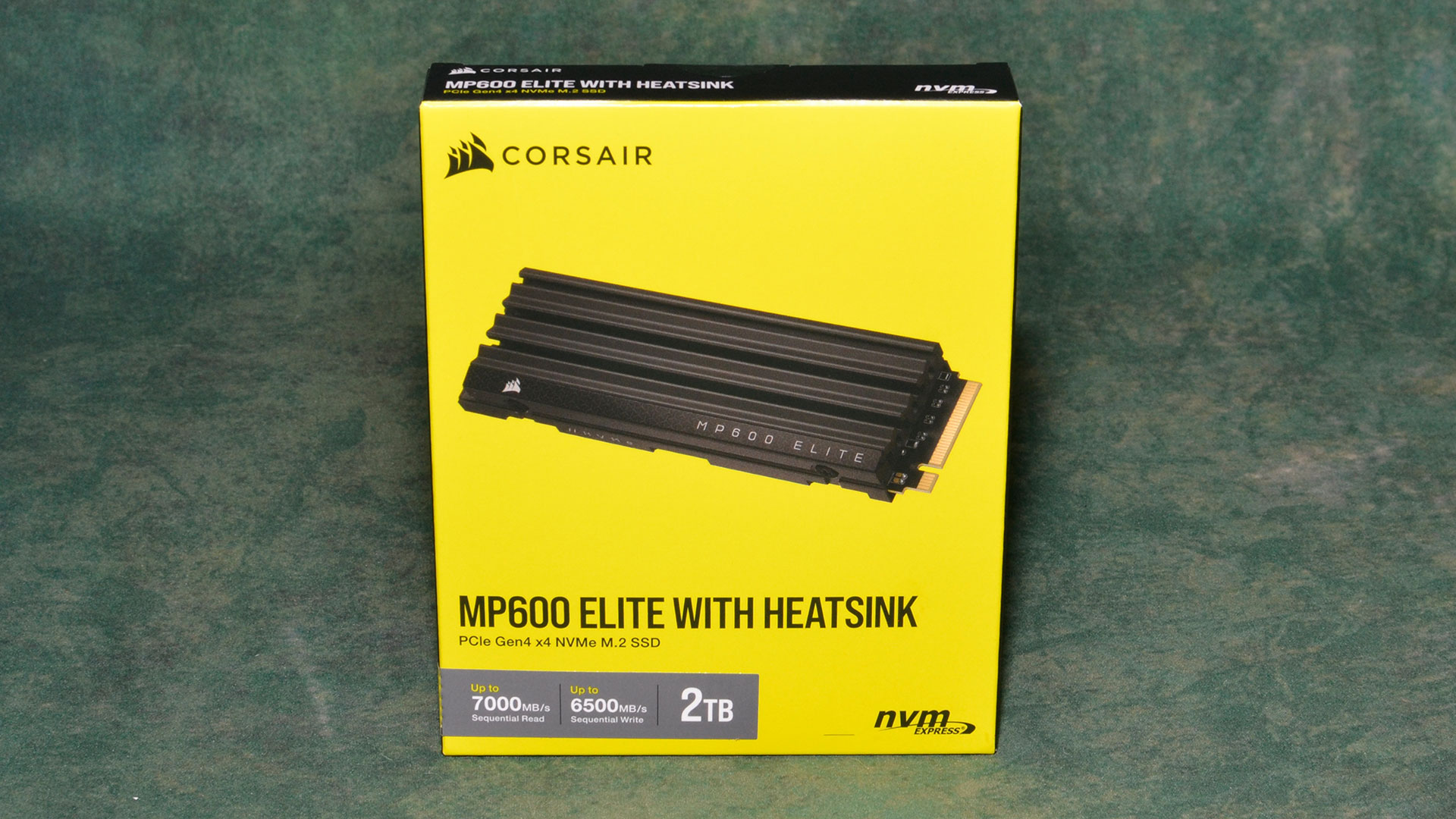
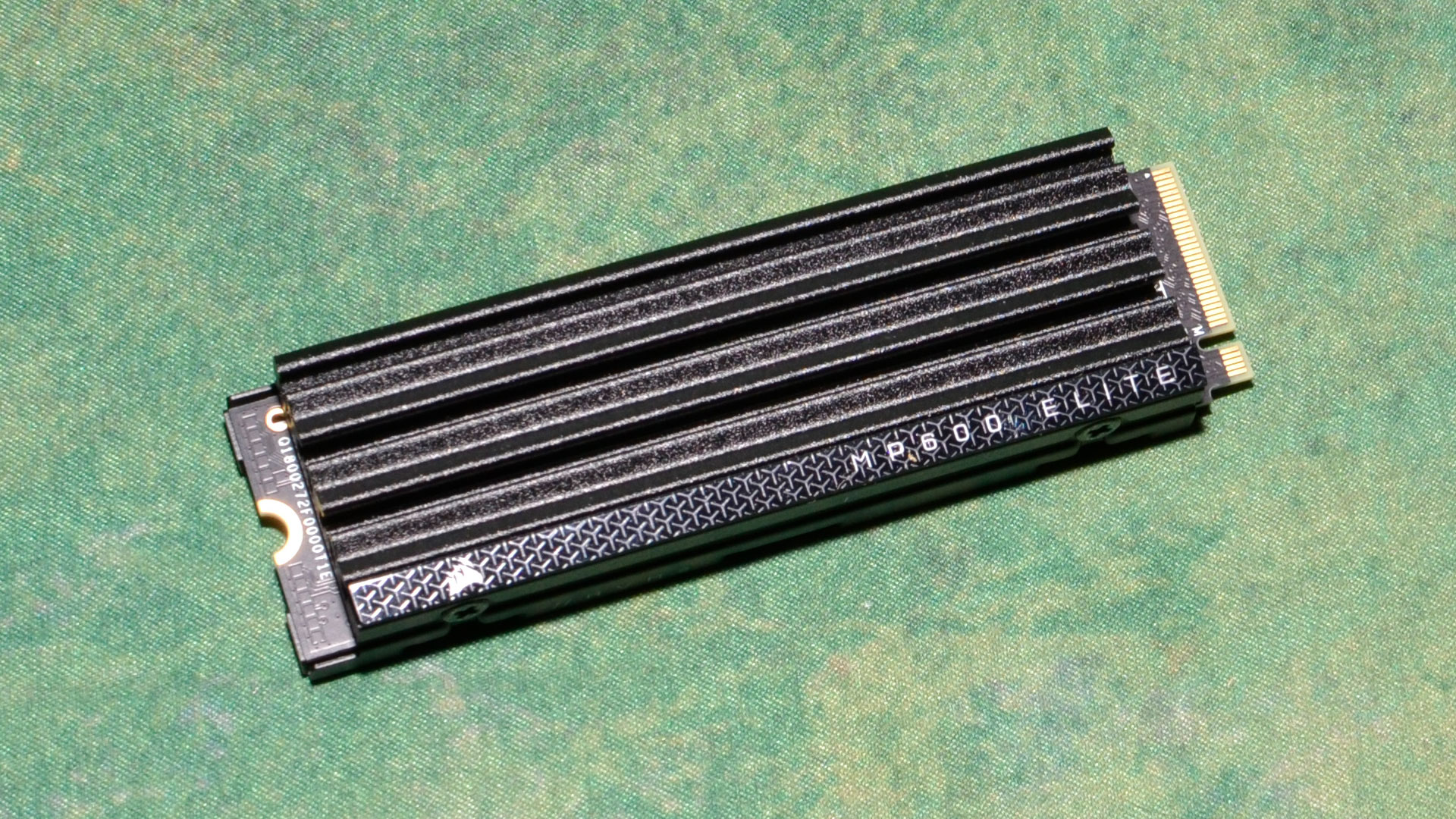
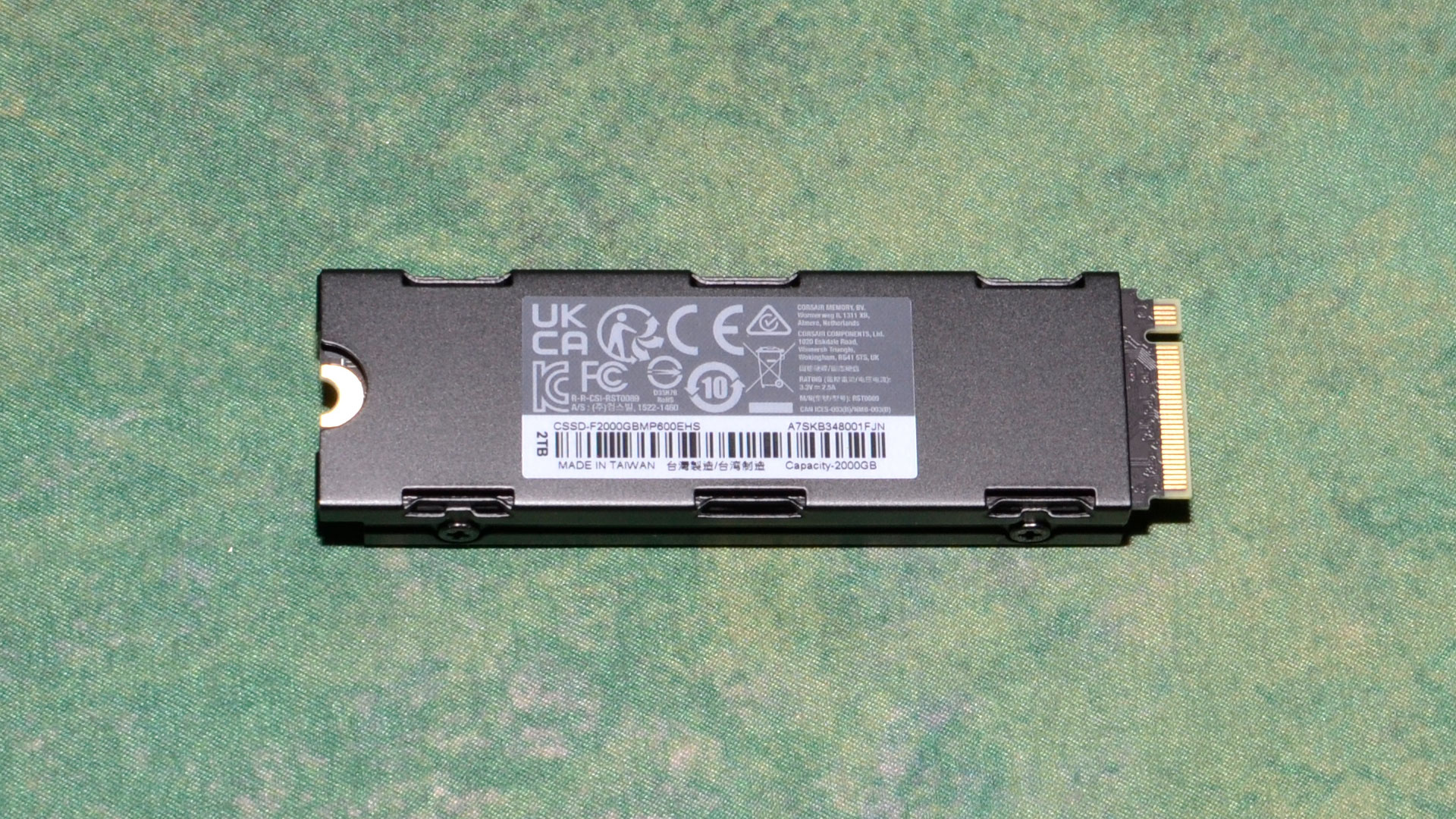
The MP600 Elite’s heatsink design is basic but effective, and the style is inoffensive. If you would prefer white to black, the MP600 Elite for PS5 exists. You can also get the drive without a heatsink to run bare or with your own cooling solution. As this drive is four-channel and DRAM-less, thermal concerns are less severe, and the bare version should work fine in a laptop.
Power numbers on SSDs should not always be taken at face value. The MP600 Elite is rated for 3.3V at 2.5A, or over 8W, but it will draw much less in regular operation. Corsair rates the 2TB at 5.7W, which matches the highest power state found by SMART. Check for more real-world details in our power results.
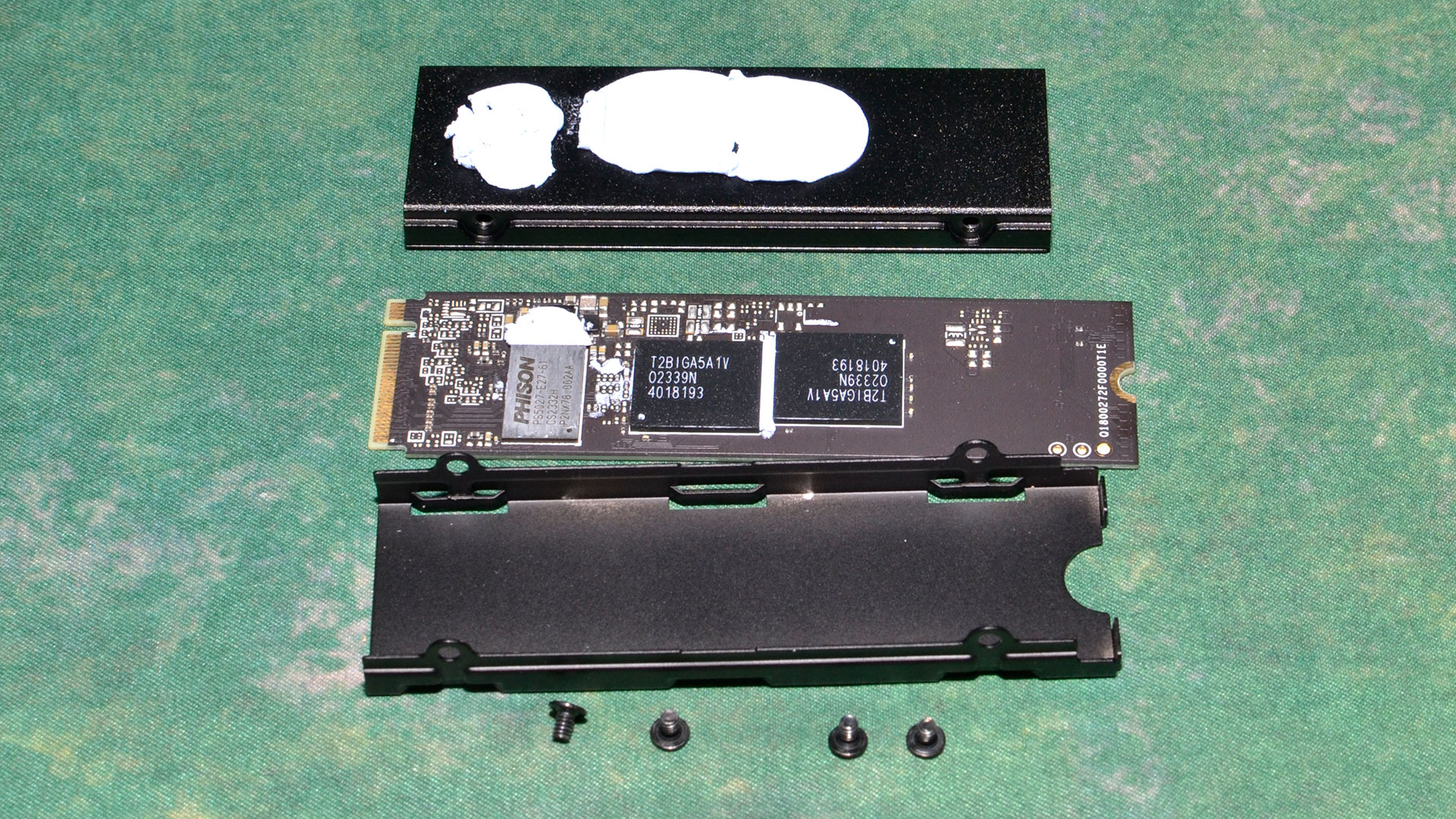
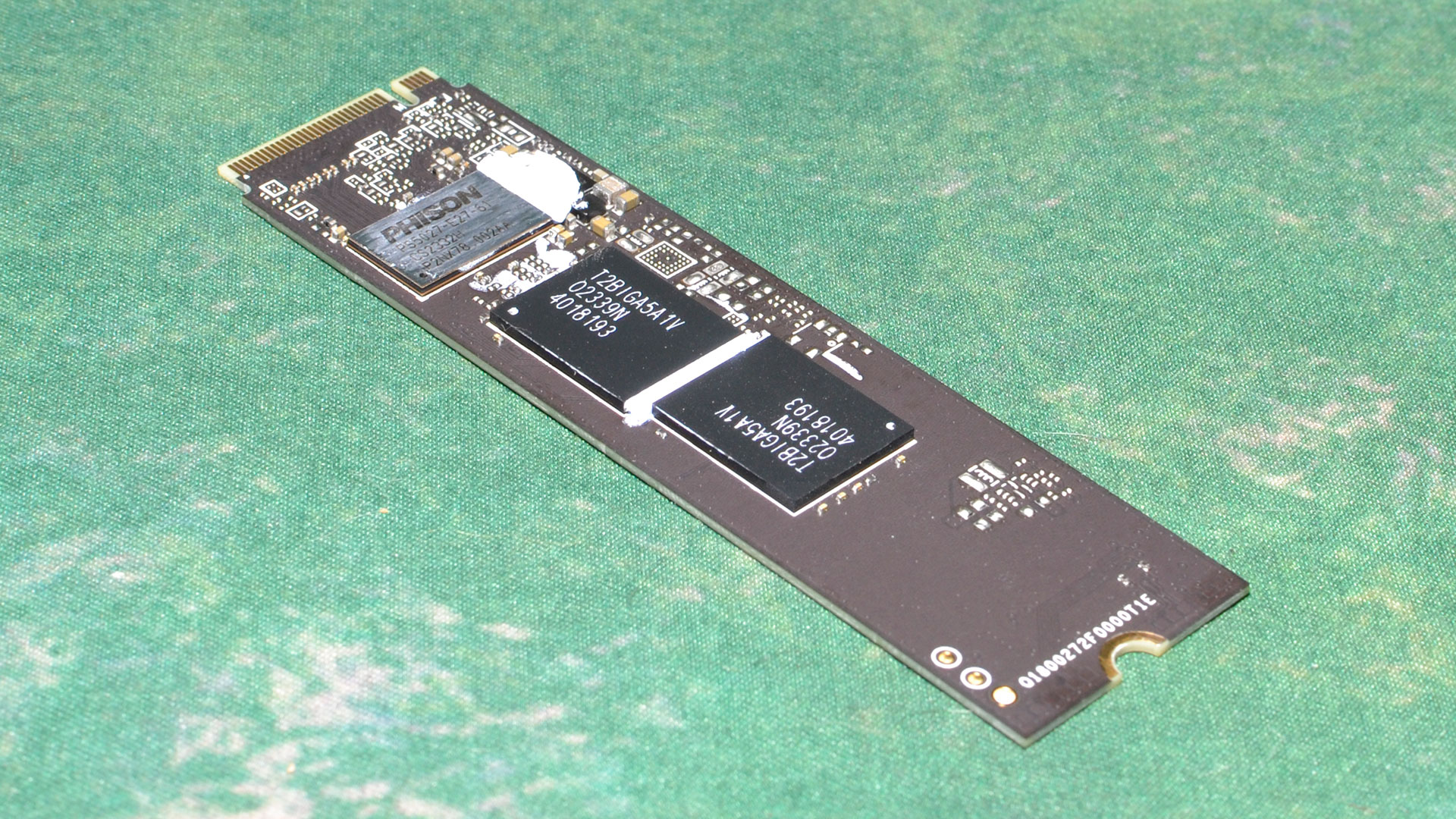
This is our first official review of an SSD utilizing the Phison E27T controller. This controller is built using TSMC’s 12nm process technology and is a four-channel, DRAM-less design. A single primary ARM Cortex-R5 processor is paired with an R5-based CoXProcessor in a configuration similar to the Phison E21T. The E21T has been an excellent performer for us in drives like the Teamgroup MP44L, but the E27T is positioned to be used in solutions against faster drives such as the Lexar NM790.
While the E21T and E27T are similar, there are also some differences. The latter is inevitably clocked higher, 1.2GHz against 1.0GHz for the primary processor. The E27T also has a higher maximum bus speed of 3,600 MT/s compared to 1,600 MT/s, which easily allows it to saturate x4 PCIe 4.0. The ability to pair with newer flash also gives it a wider capacity range. The E27T further has superior ECC with 4KB rather than 2KB LDPC. Finally, it also supports NVMe 2.0 over 1.4, although the MP600 Elite is listed as supporting 1.4. Luckily, this last bit doesn’t have any significant impact.
Aside from the Maxio MAP1602 used in the NM790 listed above, other controller competitors include the SMI SM2268XT found in the OEM Kioxia BG6. InnoGrit’s IG5220 can also match the E27T’s speeds, but it’s more commonly placed at around 5 GB/s in drives like the Patriot P400. Samsung’s proprietary Piccolo controller, used in the 990 EVO, is also capable of saturating PCIe 4.0 but falls closer to 5 GB/s with the flash used on that drive or 6 GB/s in OEM. A more reasonable comparison would be to the Crucial T500's E25, which has DRAM, but that seems to be a Crucial-only product for now.
The flash used on this drive is a bit of a mystery at first glance, and it’s possible Corsair will use a different flash on the MP600 Elite in the future. However, we know our sample is using Kioxia BiCS6, or 162-Layer TLC. This flash can hit 2,400 MT/s, which is plenty in four channels to saturate PCIe 4.0. In this case, the flash dies are 1Tb a piece. That makes for eight dies per package (ODP). However, the flash has a four-plane design, so there’s adequate interleaving for performance even at 1TB. All 16CE are used at 2TB, so performance scales fairly well too, but the use of only four dies at 512GB — if this drive had such a model — would see a significant dip in performance.
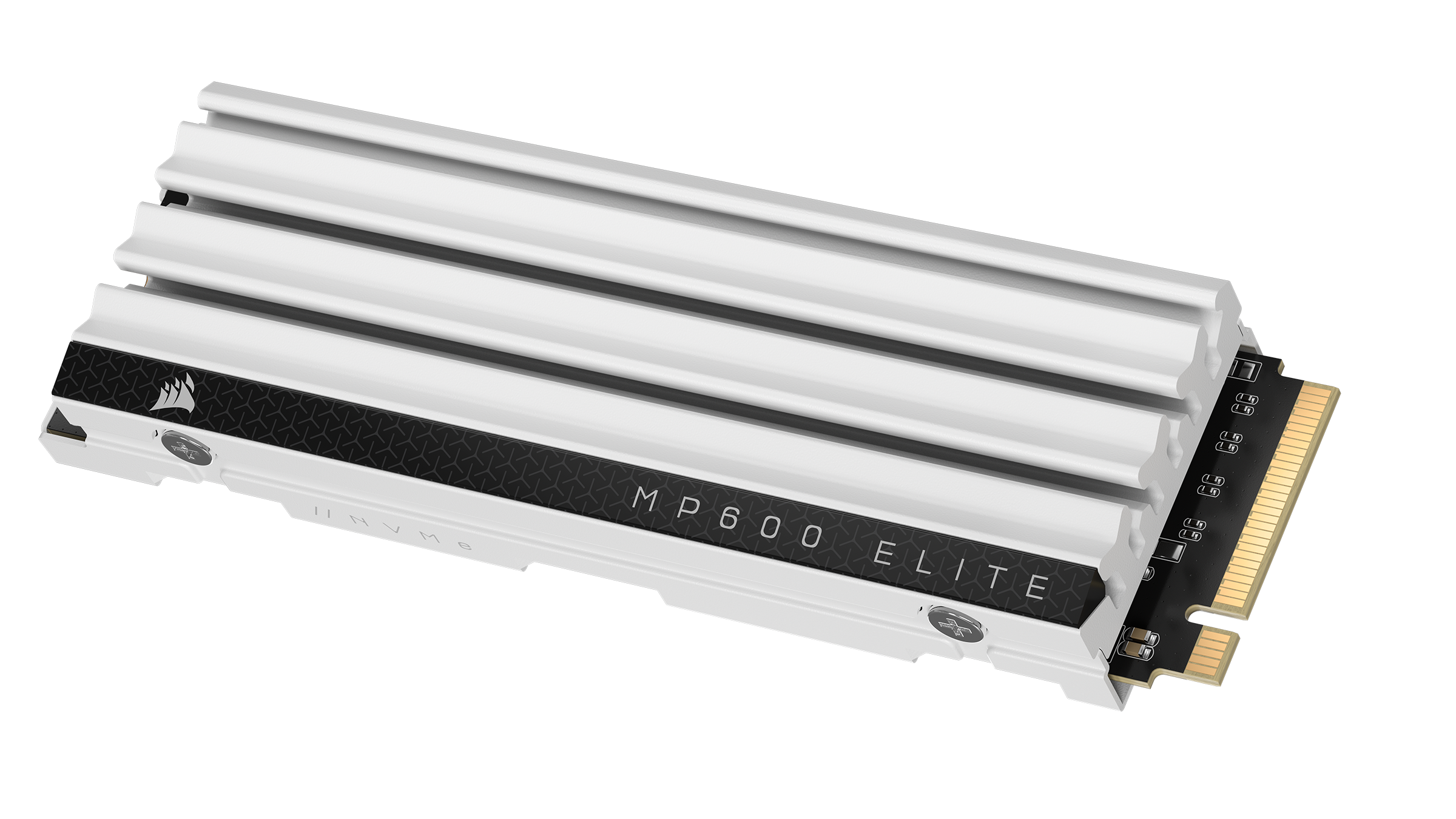
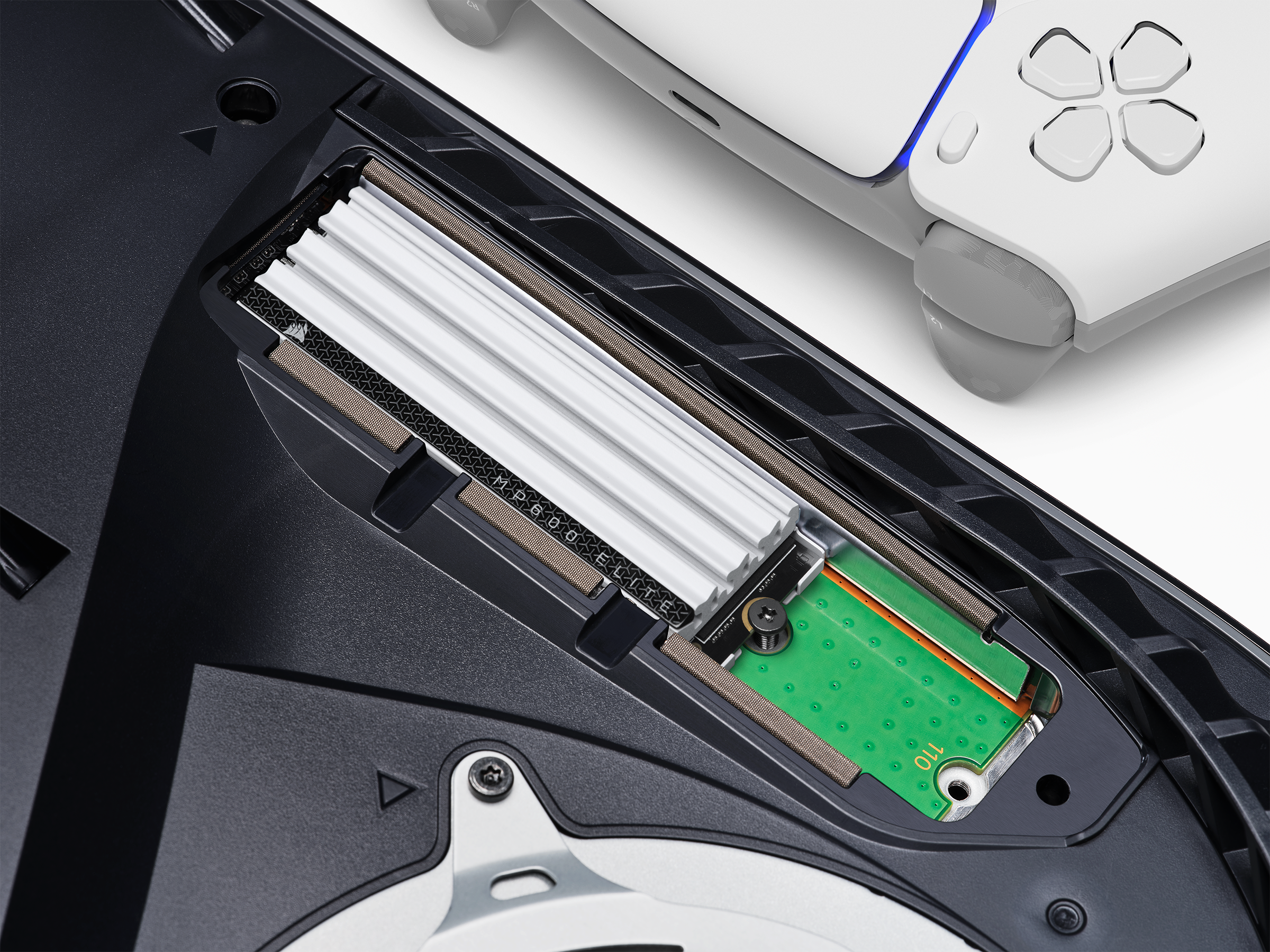
Although not being tested today, the MP600 Elite for PS5 should perform identically to the MP600 Elite. The primary difference is the color of the heatsink, which is customized to match the PS5 console.
MORE: Best SSDs
MORE: Best External SSDs and Hard Drives
MORE: How We Test HDDs And SSDs
MORE: All SSD Content

Shane Downing is a Freelance Reviewer for Tom’s Hardware US, covering consumer storage hardware.
-
Notton It's a budget drive.Reply
I think 5GB/s is plenty, so long as the price is right (which it isn't for corsair SSDs in my region).
To me, the disappointing part is that there is no 4TB, or 2260 option when it uses so little of the 2280 PCB. -
drew_p_cox Why is it that all of the reviews use the same "We also have our best performing drives in the Solidigm P44 Pro, the Samsung 990 Pro, and the WD Black SN850X." in the first paragraph when all the benchmarks favor the Corsair T500? Is the Corsair somehow not one of the best performing drives when it's listed above the other three listed in nearly every benchmark in these reviews?Reply -
Stardude82 The MSI M482 looks to have identical hardware. Check out their current pricing directly from MSI if you are in the market for a best value drive.Reply